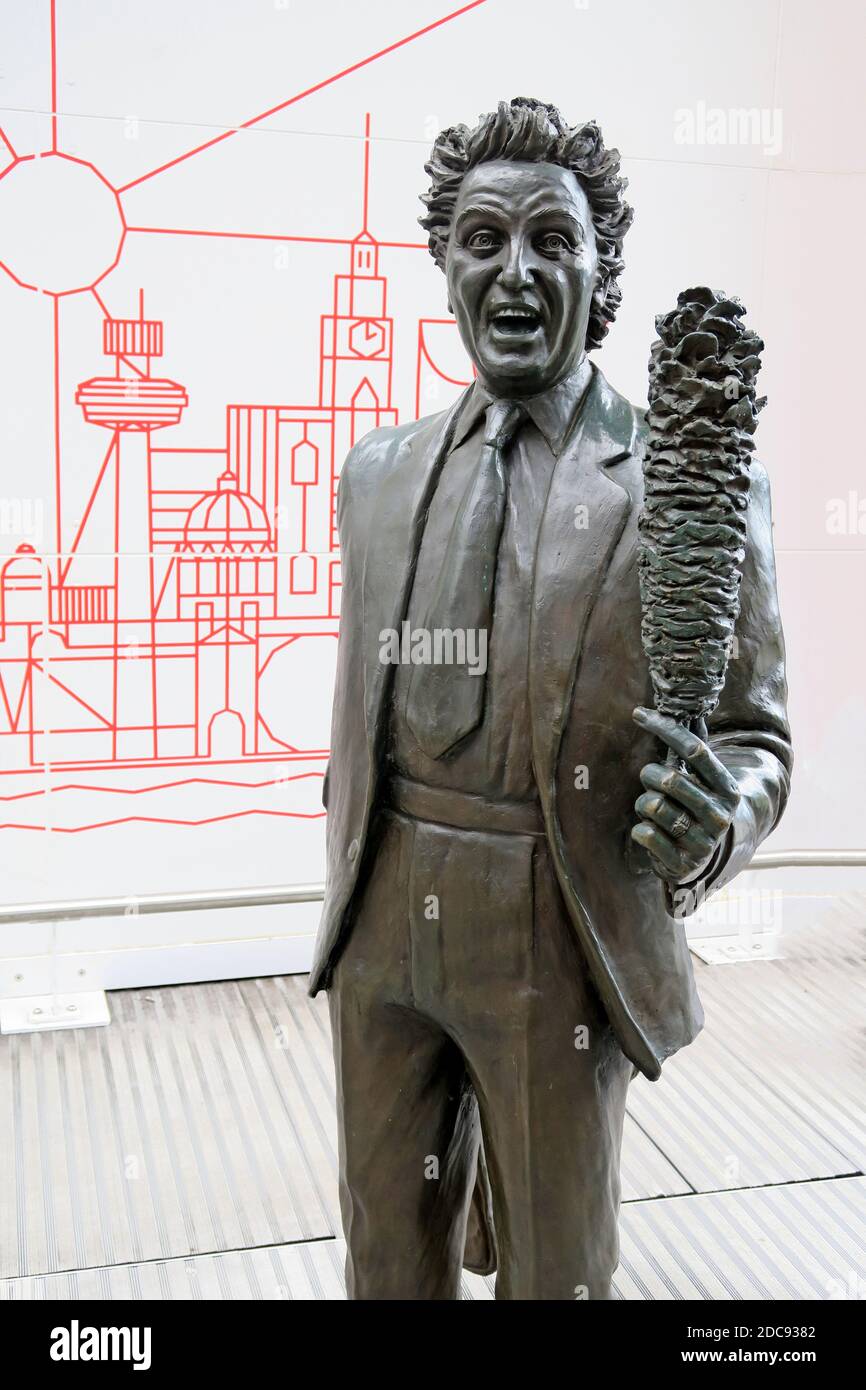Ken Dodd, Tom Murphy statue, Chance Meeting,at Lime street railway station, Liverpool, Merseyside,England,UK

Image details
Contributor:
Tony Smith / Alamy Stock PhotoImage ID:
2DC9382File size:
57.1 MB (1.8 MB Compressed download)Releases:
Model - no | Property - noDo I need a release?Dimensions:
3648 x 5472 px | 30.9 x 46.3 cm | 12.2 x 18.2 inches | 300dpiDate taken:
17 May 2019Location:
Lime Street, Liverpool, England, UK, L1 1JDMore information:
Sir Kenneth Arthur Dodd OBE (8 November 1927 – 11 March 2018) was an English comedian, singer and occasional actor. He was described as "the last great music hall entertainer", and was primarily known for his live stand-up performances. A lifelong resident of Knotty Ash in Liverpool, Dodd's career as an entertainer started in the mid-1950s. His performances included rapid and incessant delivery of often surreal jokes, and would run for several hours, frequently past midnight. His verbal and physical comedy was supplemented by his red, white and blue "tickling stick" prop, and often introduced by his characteristic upbeat greeting of "How tickled I am!" He interspersed the comedy with songs, both serious and humorous, and with his original speciality, ventriloquism. He also had several hit singles primarily as a ballad singer in the 1960s, and occasionally appeared in dramatic roles. He performed on radio and television, and popularised the characters of the Diddy Men. Dodd was described as "the last great music hall entertainer".[14] His stand-up comedy style was fast and relied on the rapid delivery of one-liner jokes. He said that his comic influences included other Liverpool comedians like Arthur Askey, Robb Wilton, Tommy Handley and the "cheeky chappy" from Brighton, Max Miller Dodd had many hit records, charting on 18 occasions in the UK Top 40, including his first single "Love Is Like a Violin" (1960), produced on Decca Records by Alex Wharton, which charted at number 8 (UK). His version of Bill Anderson's song "Happiness" charted in 1964 and became Dodd's signature song